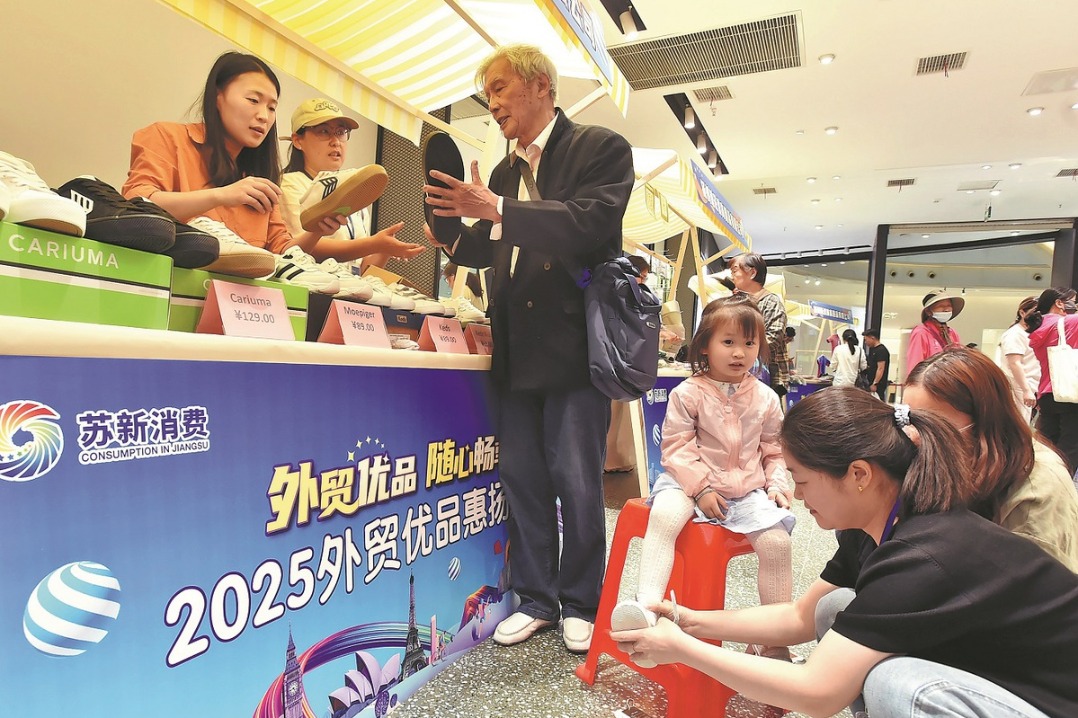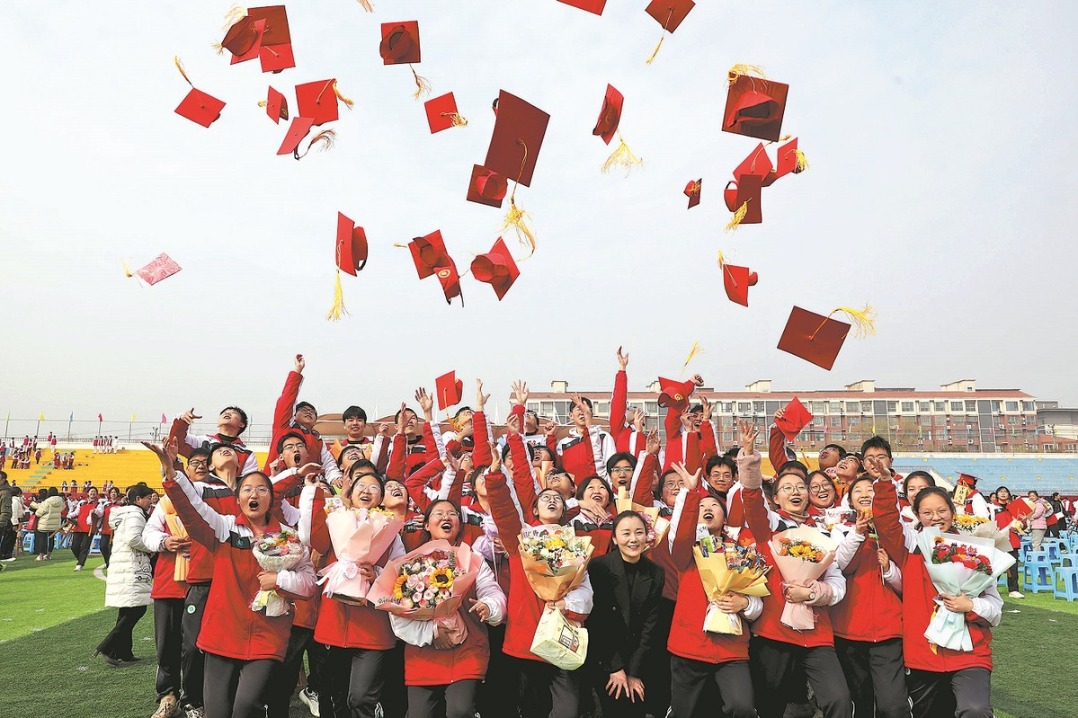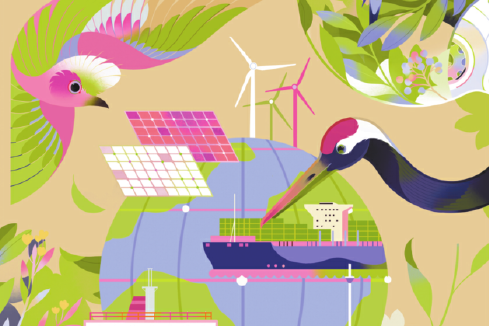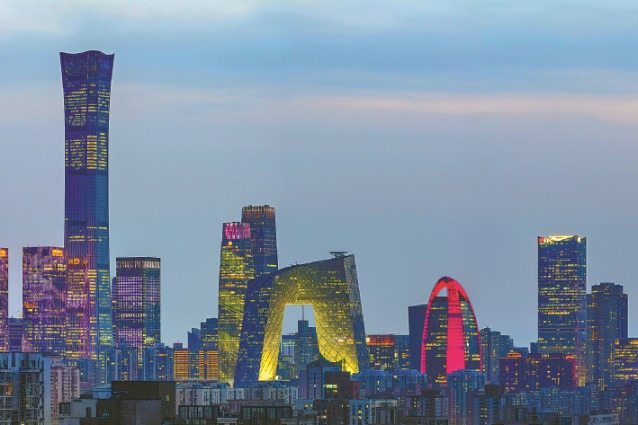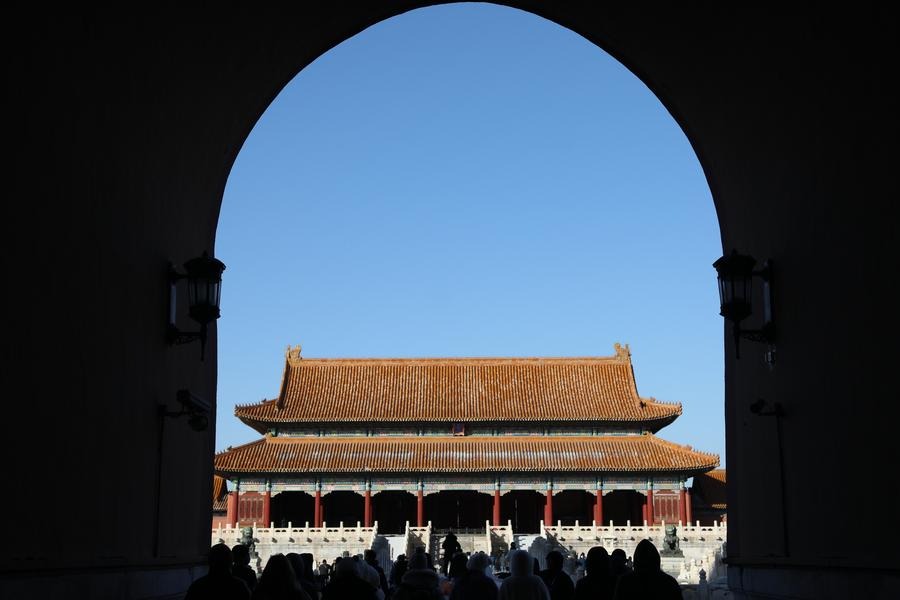Testing time

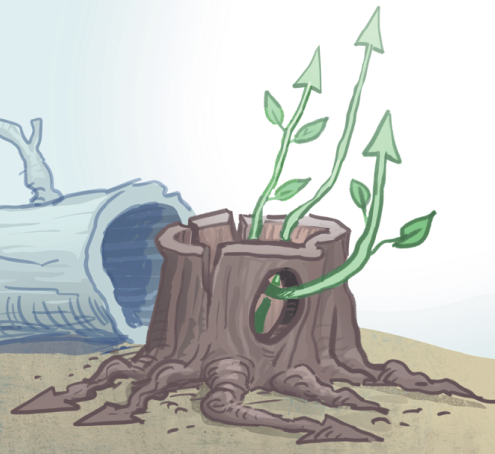
With the right approach, companies can turn the pandemic from a crisis into an opportunity
While China has reported no increase in the number of domestic infections for a few day, the United States now tops the world in novel coronavirus cases, and with fears of more turbulence ahead, the US stock market circuit breakers have come into effect four times within 10 days. International Monetary Fund Managing Director Kristalina Georgieva warned on March 24 that the global economy is heading toward a recession in 2020.
It is a testing time for enterprises, especially those operating on a global footprint. But there is a ray of hope, as experience shows that companies can turn such a crisis into a cornerstone of long-term prosperity. Looking back at the 2008 global financial crisis, the automobile manufacturer Ford and the Chinese electrical goods manufacturer Gree are two outstanding examples.
With drastic reforms carried out since 2006, Ford was the only one of the three major US auto companies that did not apply for bankruptcy protection and turned a profit in 2009. Gree, under the overall negative growth of China's air conditioning market in 2008, achieved an increase of 11 percent in operating revenue and 66 percent in net profit that year.
Looking at how Ford and Gree made their turnarounds, they had two different approaches. The keyword for Ford was "austerity"-a major decision was to divest unprofitable assets such as Aston Martin, Jaguar Land Rover and Volvo to stop the bleeding, and focused the funds on the Ford and Lincoln brands. This divestiture led to the acquisition of Volvo by China's automaker Geely for $1.8 billion.
Similar to Geely, Gree's core strategy was also "expansion". During the 2008 financial crisis, Gree increased its R&D investment and launched a series of new products with independent intellectual property. Gree was also keen to tap into the new rural segment created by the "home appliances going to the countryside" program.
Although most companies will take measures to both economize on expenditures and tap new opportunities, a large number of practices prove that only one of these two ways plays a decisive role in realizing the leap from survival to success.
So which road should companies take? We believe the key determining factor is the extent to which a company will be impacted by the economic recession. The choice will be different for those companies hardest-hit and those companies which are not.
On the industry level, with people trying to go out as little as possible due to the novel coronavirus outbreak, businesses in the transportation sector (for example airlines) as well as those relying on offline experiences (for example restaurants) are the "epicenter" and they are experiencing a sharp decline.
On a company level, as the capital injection slows down or even ceases during the economic downturn, companies with higher liability ratios are more severely affected compared to those with smaller debt.
Thus, for the "epicenter" companies, the key to survival is to safeguard their cash flow. Cash is king and shortage of cash can be fatal during a crisis. In terms of operating expenses, companies should strengthen their loan recovery, strive for government subsidies, and strictly reduce their expenses. And in terms of capital expenses, companies should plan for divestiture of nonperforming assets and be prudent when investing in mergers and acquisitions.
Taking Ford as an example, the "One Ford" plan during the 2008 financial crisis helped the company improve its cash flow quickly. In 2010, after Ford sold Volvo to Geely, its cash flow reached $15 billion. And by the end of 2011, its cash flow further topped $17 billion. On the contrary, being strapped for cash General Motors and Chrysler were forced to seek bankruptcy protection.
Non-epicenter companies have more room to tap new opportunities and optimize their business portfolios. Geely and Gree were two typical cases during the 2008 financial crisis. And if there is a recession, many enterprises have launched new products and services based on the new needs triggered by the epidemic. For example, Alibaba's online retailer, Hema has not only expanded its food delivery services, but has also shifted its focus from in-store dining to semi-finished food. According to statistics, China's fresh food e-commerce had less than 8 million daily users before the Spring Festival, and after the festival this number quickly broke through 12 million, with a growth rate of more than 50 percent.
Another typical example is China's foreign trade original equipment manufacturers, which have actively expanded in the domestic market, under the pressure of reduced orders from European and US customers. Some of them have even built their own brands to expand their business to consumer operations.
Among the new products and services launched under the "abnormal" conditions, there are many businesses that have potential to be sustained in the future. Thus, companies should think about how to maintain the new customers obtained during the epidemic through better customer management and product innovation.
Past experience shows that "crisis" and "opportunity" do not exist in isolation. Although each company must face the novel coronavirus crisis and develop its own strategy to overcome it, those companies that are forward-looking and pragmatic will not only survive the recession but thrive afterward.
Sherri He is the managing director of Kearney Greater China, and the head of Consumer & Retail industry. Liu Xiaoming is a partner of Kearney Greater China, Auto and Industrial Goods. The authors contributed this article to China Watch, a think tank powered by China Daily. The views do not necessarily reflect those of China Daily.



















